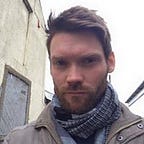What is CATLAN
The Headlines
What is CATLAN in Summary?
The Community for (A)lternative (T)hought, (L)earning and (A)ction in (Nature (CATLAN) is a transdisciplinary research, art and teaching collective that promotes alternative ways of thinking and doing for positive change and transformation in Nature.
We are (A)lternative as we do this outside of sterile discussion and classrooms, and instead embed intellectually profound learning in the emotionally and pedagogically powerful places and practices of life.
We provide a range of educational and development provisions for postgraduate and executive level learners, as well as current and recent undergraduate students, community organisers and committed individuals. We offer opportunities for individuals and organisations.
Breaking Down Our Focus
(A)lternative — alternative to what? To unhappiness, to un-loveness, to unwanted distraction, to not being heard, to no-alternatives, to quick answers, to sound-bites, to survival of the fittest, to wellness, to diet pills, to ‘instant’ anything, to small print, to spin, to othering, to “the canon”, to hippy wigs in Woolworths, to bad food, to backache, to Genesis 1:26–28, to wastefulness, to GDP, to well-tended lawns and many other things we’ve missed out. We strive to build our “knowings” and “beings” on more alternatives wherever incompleteness and inadequacy emerge. CATLAN starts with pre-cognitive reworking of our collective understandings about interconnectedness of (T)hought and (A)ction, as embedded in (N)ature; it welcomes anyone with a desire to build from here to elsewhere.
(T)hought — conscious thought is taken as a defining characteristic of our lived experience. But we’re taught do things, even if some times we don’t realise we’re taught to do things. And no, this isn’t always bad, what’s bad is never realising it and never taking the time to think about it, to play with it, alter it and if it’s bad, change it. Find something better and change it. (T)hought and (A)ction aren’t the front and back of a panto horse, both can breed and effect one another, just like unconscious and conscious thought can, and unconscious ritual movement and conscious exact movement can. Let's just try and imagine there’s no border between all these things.
Overall, the CATLAN focus is on the positive potential of thought: to think, rethink, imagine and plan. Through this means, we are aware of the role of unconscious ideational process that embed our conscious workings. We support (A)lternatives in promoting an acceptance of an unconscious working — in language and culture for example — alongside conscious imagination, knowledge creation and planning for the future.
(A)ction — or intellectually embedded practices are essential for new, alternative, and most of all more positive futures that we hold out hope of achieving by shifting the intellectual and practical relationships within Nature.
(L)earning — reflects a focus on the active facilitation of thought and knowledge creation, through grounded pedagogical structure and process. Overall, learning must be a process that best suits its user, a process that blurs the line between active and passive (doing an experiment and gardening while thinking about that experiment), a process that demands constant adaptation, a process that invites the unexpected, a process that thrives on overlapping ideas, theories, disciplines and unforeseen collaboration, a process that unbalances dynamics (you be the “teacher” in the first half of the lesson and I’ll do the second).
(N)ature — The thing that exists without our conscious or unconscious beliefs; the thing we humanise to make ourselves feel better. The thing that works perfectly if allowed to, the thing that our conscious, and ultimately unsuccessful, attempt to abstract ourselves from, has been left unstable and degraded.
CATLAN, as of 01/08/2023.
